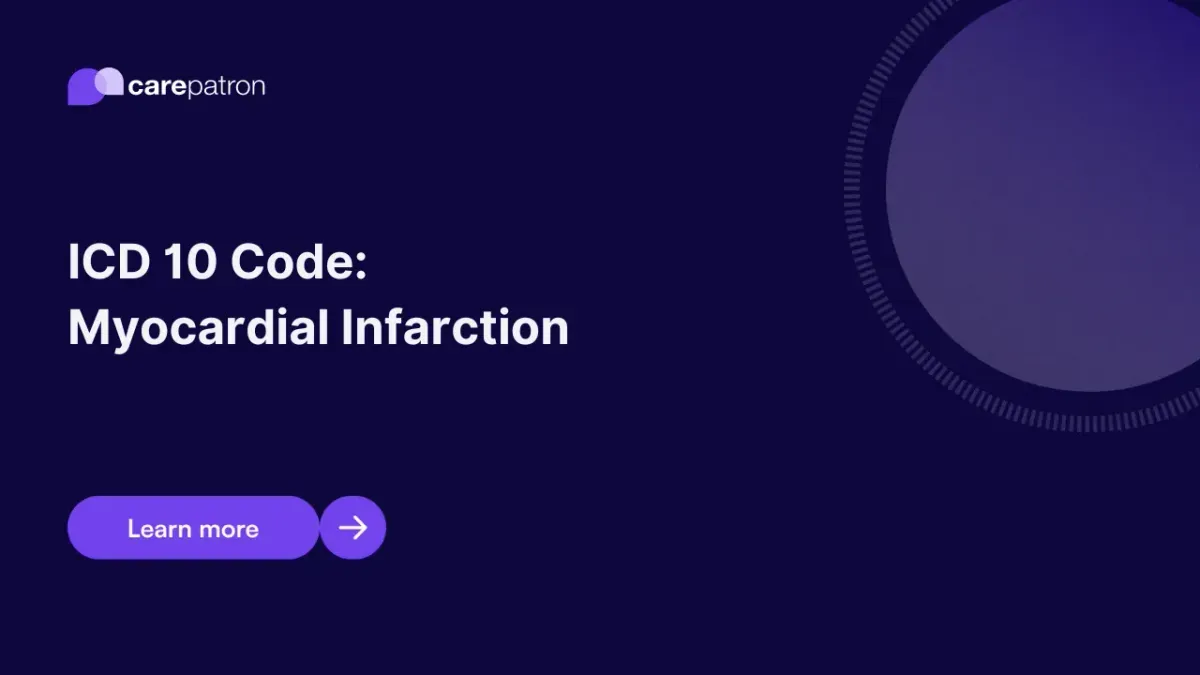
Myocardial Infarction ICD-10-CM Codes
Explore ICD-10-CM codes for myocardial infarction, including STEMI, NSTEMI, initial and subsequent MIs, with coding tips for accurate documentation.
Use Code
Commonly asked questions
The general ICD-10-CM code for myocardial infarction is I21, which includes both ST elevation (STEMI) and non-ST elevation (NSTEMI) types. Specific subcodes like I21.4 (NSTEMI) or I21.3 (STEMI, unspecified site) should be used based on the clinical presentation.
The ICD-10-CM code for unspecified infarction is I21.9: Acute myocardial infarction, unspecified. This is used when the type or location of the MI has not been clearly documented.
Acute myocardial infarction (AMI) refers to a sudden and severe blockage of blood flow to part of the heart muscle, usually caused by a thrombus or embolus in a coronary artery. This blockage deprives the heart tissue of oxygen, leading to ischemia and eventual infarction, or tissue death, if not treated promptly.
EHR and practice management software
Get started for free
*No credit card required
Free
$0/usd
Unlimited clients
Telehealth
1GB of storage
Client portal text
Automated billing and online payments
